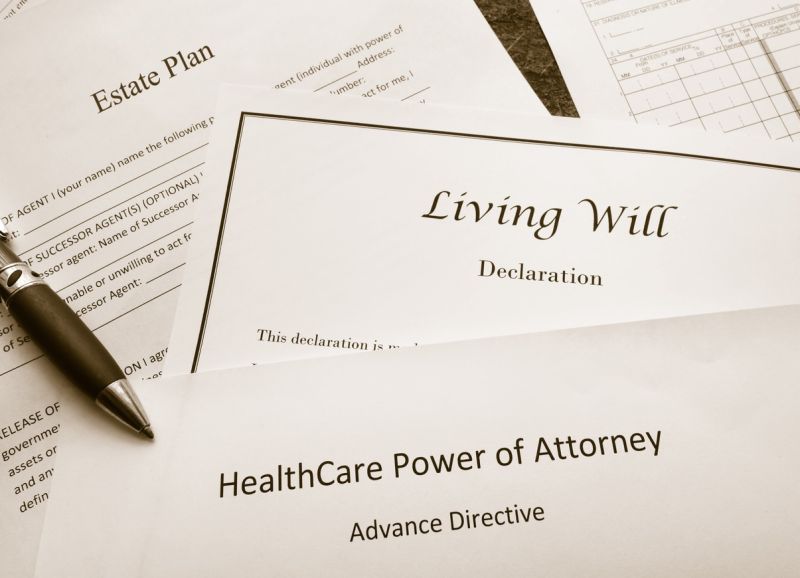Estate Planning For Personal Injury?

Why would a personal injury lawyer encourage you to get an estate plan done? What does an estate plan have to do with a personal injury case?
By the way, what exactly is an estate plan anyway?
Estate Planning—What is It?
Simply, it is what you want to happen when you die, and, in some instances, in the event that you become incapacitated.
Everyone understands the concept of a Last Will and Testament, commonly referred to as a will. In simple terms, your will makes official who gets your material and financial possessions when you die. Wills can be as simple as “I want all my money to go to my wife.” Or as complicated as “10% of the residue of my estate to my wife, 10% to my one child, and 80% to my caretaker.”
And they can be more complex than that. Without getting too wonky, trusts can be a way to pass your property to your heirs without having to funnel things through probate court (saving money) and also keeping things out of the public eye.
However, there are also documents that address planning for events that happen during your lifetime. That includes the possibility of your sudden incapacity. If you were to become incapacitated, you would want to have in place Powers of Attorney for Health Care and Property. There is also a document known as a living will, that communicates your desires regarding end-of-life care.
Essentially, these documents allow a person whom you have chosen to make medical or financial decisions for you when you are unable to make them for yourself. Every adult should have them, because they could be needed without warning.
Okay. But what exactly does that have to do with personal injury anyway?
There’s Been an Accident
No one wants to receive a call that begins with “There’s been an accident…,” but the reality is, it does happen sometimes.
You are out bicycling and are struck by a car and lose consciousness.
You fall ill with a debilitating stroke and are not conscious or able to make decisions.
There are numerous instances where you might want to have your “affairs in order” ahead of these dreaded events.
If you have these documents ready, distributed to the people you designated, and everyone is aware of your wishes, there will be no doubt about what to do in the event you are declared brain-dead. There will be no question about who should pay your bills while you are in a coma, or whether they will have access to the accounts they need to do so. No one will be able to quibble about who is to make those decisions.
Or you could blow off doing anything and wind up comatose in a hospital bed, with your relatives fighting about what you wanted, while the hospital is unable to do anything.
Personal Injury
Whether there is a will in place is relevant to some types of personal injury cases, such as wrongful death cases. As an example, let’s say your spouse undergoes a back surgery but suffers a seizure during surgery. Brain damage occurs, ultimately leading to their death.
You believe this outcome might have been preventable, and ask a lawyer to investigate whether there was malpractice involved or whether your spouse’s death qualifies as a case under the Wrongful Death Act. With a will in place, the attorney will be able to file a lawsuit in the name of the representative of the estate of the deceased spouse (presumably you, the surviving spouse). The will also will guide the court in how to distribute the proceeds of any verdict or settlement from such a case.
Without a will in place, it’s possible every one of your spouse’s children, or perhaps their best friend, or maybe even their ex-spouse , would claim to be the representative of the estate, or try to get a piece of the settlement.
That’s why you get this documentation prepared and executed before you need it, before any debilitating accident or illness, before you cannot make decisions for yourself, before your relatives start arguing over your welfare (or your assets) amongst themselves.
Workers’ Compensation
Remember all those people dying during the COVID-19 pandemic? Some of their survivors claimed they died due to being exposed at work. The Workers’ Compensation Act was amended to create a rebuttable presumption that if someone got COVID-19, it was related to work. For example, if Joe worked in a factory, and the factory didn’t have any distancing or mask protocols in place, told him the only way he’d get paid is if he showed up in person, and Joe came home one day feeling lousy only to wind up hospitalized and later dying from COVID-19, what would happen?
His designated relative or spouse could file a workers’ compensation death case for his COVID-19 related death that was presumably due to his workplace exposure.
Without an estate plan, things would get complicated as to who could file on Joe’s behalf and who would receive the benefits of any claim. With a will in place, most of that would be predetermined. Of course, Joe’s family would still have to deal with the terrible pain of his loss. But at least that pain wouldn’t be compounded by unnecessary red tape and family bickering.
Takeaways
- Estate plans set forth your desires for decision making about your physical care as well as your finances. They also designate who will take what portion of your estate upon your death.
- Estate plan documents can guide medical personnel as to what life-saving treatments you would or would not want.
- The best time to prepare an estate plan is before you need it. Knowing how quickly things can change in health, or how suddenly a catastrophic injury can occur, the time is always sooner rather than later.
- Estate plans allow members of your family to make decisions for you, file lawsuits or other claims on your behalf, and manage your affairs.
Contact Chicago Personal Injury Lawyer Stephen Hoffman
As in all cases involving injury, such as dog bites or attacks, workers’ compensation, medical malpractice, or other injury and potential liability, if you have been hit by a vehicle immediately get medical treatment, report the crash to police and your own insurance company, and contact a lawyer with expertise in your type of case, such as bicycle accidents or pedestrians hit by cars.
If you've been in an accident and have questions, contact Chicago personal injury attorney Stephen L. Hoffman for a free consultation at (773) 944-9737. Stephen has over 30 years of legal experience and has collected millions of dollars for his clients. He is listed as a SuperLawyer, has a 10.0 rating on Avvo, and is BBB A+ accredited. He is also an Executive Level Member of the Lincoln Square Ravenswood Chamber of Commerce.
Stephen handles personal injury claims on a contingency fee basis, which means you don’t pay anything up front, and he only gets paid if you do. Don’t wait another day; contact Stephen now.












